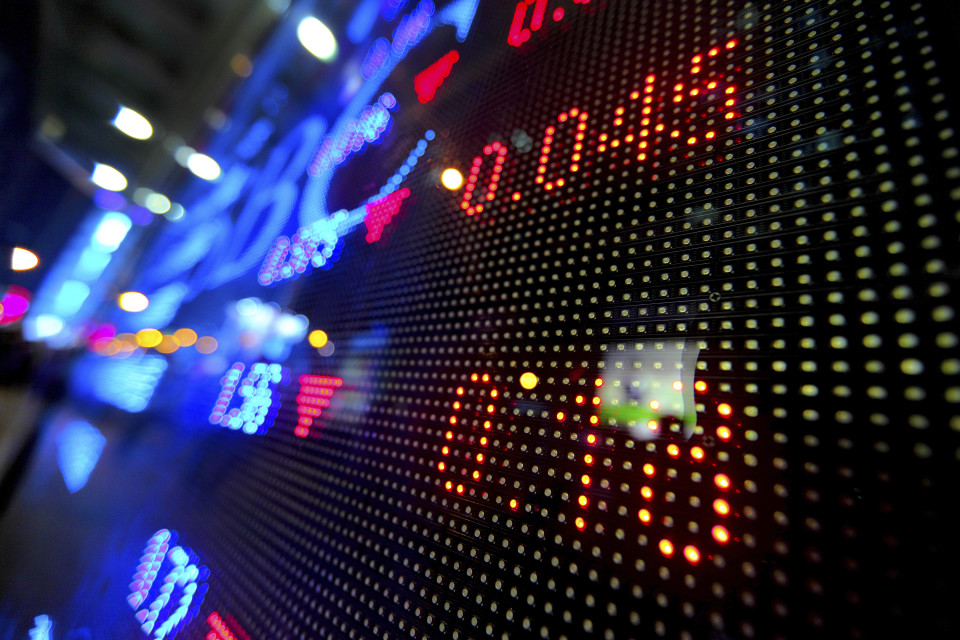- High-cap Stocks Drag Equities to N42b Loss
Most transactions at the Nigerian equities market closed yesterday at higher prices but losses recorded by large-cap stocks overshadowed the overall market position.
Benchmark indices at the Nigerian Stock Exchange (NSE) indicated average decline of 0.32 per cent, representing a net capital depreciation of N42 billion.
With 26 gainers to 14 losers, most sectoral indices closed on the upside as investors sought to take advantage of low share prices across small and mid-cap stocks. However, profit-taking transactions of Dangote Cement, UAC of Nigeria and FBN Holdings depressed the overall market value.
The All Share Index (ASI)-the main index that tracks share prices at the Exchange, declined from its opening index of 35,426.17 points to close at 35,311.36 points. Aggregate market value of all quoted equities also dropped from its opening value of N12.933 trillion to close at N12.891 trillion. Average year-to-date return for Nigerian equities declined to -7.67 per cent.
Sectoral analysis showed widespread recovery across the sectors. The NSE Banking Index and NSE Insurance Index rose by 1.0 per cent each. The NSE Oil & Gas Index appreciated by 0.5 per cent while the NSE Consumer Goods Index inched up by 0.2 per cent. However, the NSE Industrial Goods Index played the contrarian, dropping by 0.8 per cent. Dangote Cement is listed under the industrial goods sector.
Dangote Cement led the losers with a drop of N5 to close at N230. Unilever Nigeria followed with a loss of N1.50 to close at N51. UAC of Nigeria declined by 60 kobo to close at N12. GlaxoSmithKline Consumer Nigeria lost 30 kobo to close at N15. Ikeja Hotel dipped by 27 kobo to close at N2.52 while FBN Holdings declined by 15 kobo to close at N9.50 per share.
On the positive side, Total Nigeria led the gainers with a gain of N3.40 to close at N181. Flour Mills of Nigeria followed with a gain of N2.10 to close at N23.60. Lafarge Africa rose by 75 kobo to close at N27. Guaranty Trust Bank and Nigerian Breweries chalked up 50 kobo each to close at N38 and N100.50 respectively while Dangote Sugar Refinery added 30 kobo to close at N15 per share.
Total turnover stood at 178.81 million shares valued at N2.02 billion in 2,981 deals. Nigerian Aviation Handling Company was the most active stock with a turnover of 19.23 million shares valued at N73.05 million. Access Bank followed with a turnover of 16.84 million shares worth N151.83 million while Diamond Bank placed third with a turnover of 13.23 million shares valued at N15.6 million.
Analysts remained cautious about the outlook for the equities market, with projections depending on the investment horizons.
“In subsequent sessions, we expect a positive performance as investors position in bellwethers with attractive entry prices,” Afrinvest Securities stated.
“In the interim, we expect sentiments to remain downbeat underpinned by continued apathy towards the market as the 2019 electoral cycle draws nearer amid sustained sells in emerging and frontier markets by offshore investors,” SCM Capital stated.


 Forex3 weeks ago
Forex3 weeks ago
 Naira3 weeks ago
Naira3 weeks ago
 Billionaire Watch2 weeks ago
Billionaire Watch2 weeks ago


 Naira3 weeks ago
Naira3 weeks ago




 Naira2 weeks ago
Naira2 weeks ago




 Naira1 week ago
Naira1 week ago




 Naira4 weeks ago
Naira4 weeks ago
 Banking Sector4 weeks ago
Banking Sector4 weeks ago























